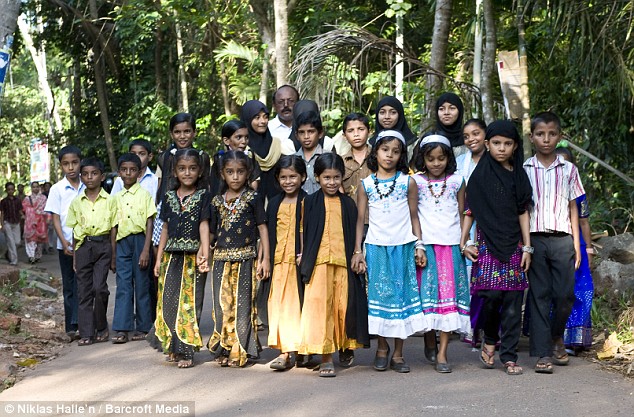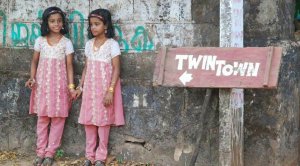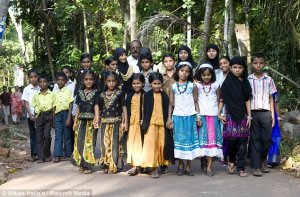Some places in the world disprove the facts laid down by science by a huge margin. One such place is a small village in India, which has a birth-rate of twins so high it challenges the general notion of biology!
Kodinhi is a modest settlement in Kerala, India. It is home to about 2,000 families, but the most remarkable thing about the village is that there are around 400 pairs of twins in those families!
Twins, twins everywhere!
India has one of the lowest rates for the pairs of twins born in a country, standing at around 9 twins per 1,000 births. However, people in Kodinhi seem to have sworn to break this norm. The rate in that village stands at an astonishing 45 twins per 1,000 births! This rate is not just high in India, it is one of the highest all around the world.
There is no proper explanation for this phenomenon, although scientists have tried really hard to find some conclusion to it. Local doctor Krishnan Sribiju took up this case in the late 2000s. His reports were published in The Daily Mail, where he stated that Asian people have the lowest occurrences of twinning at about 4 per 1,000 and along with that, due to the cost of performing and IVF, people in that village do not opt for it.
Where are they all coming from?
One possible explanation could have been included in the diet of the people of Kodinhi. However, it doesn’t appear that there is anything strange, different or out of ordinary about the food or the water consumed by the residents of the village. All that Sribiju could conclude was that according to his research, this miracle in the medical world began in that village around 60 to 70 years ago.
As of now, we still do not have answers to the important questions this phenomenon poses. The mystery of the twin village, Kodinhi will remain a mystery for now, but it’s a challenge that the scientific community has to solve. After all, it is true that communities such as these do contribute to our knowledge about genetics and fertility; and may, in time, help us devise methods to tackle infertility.





